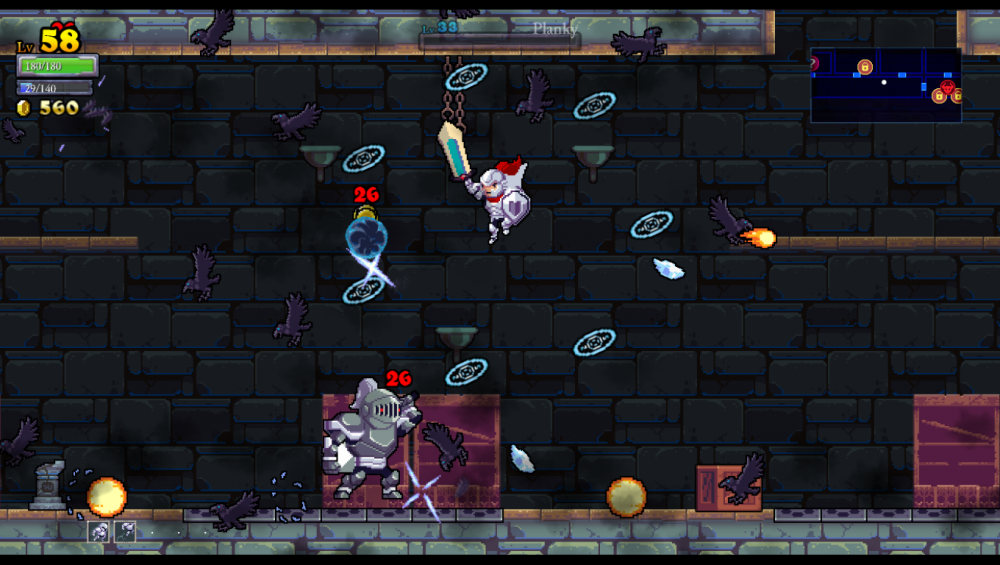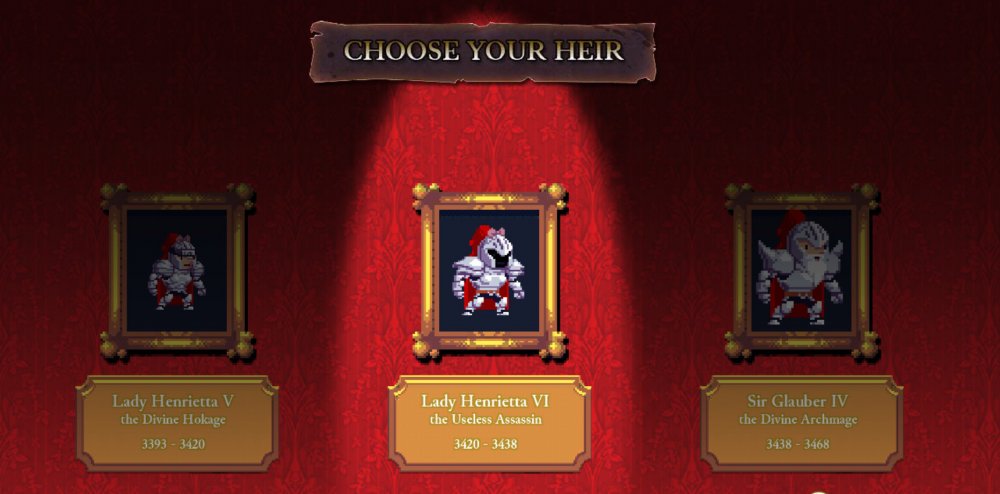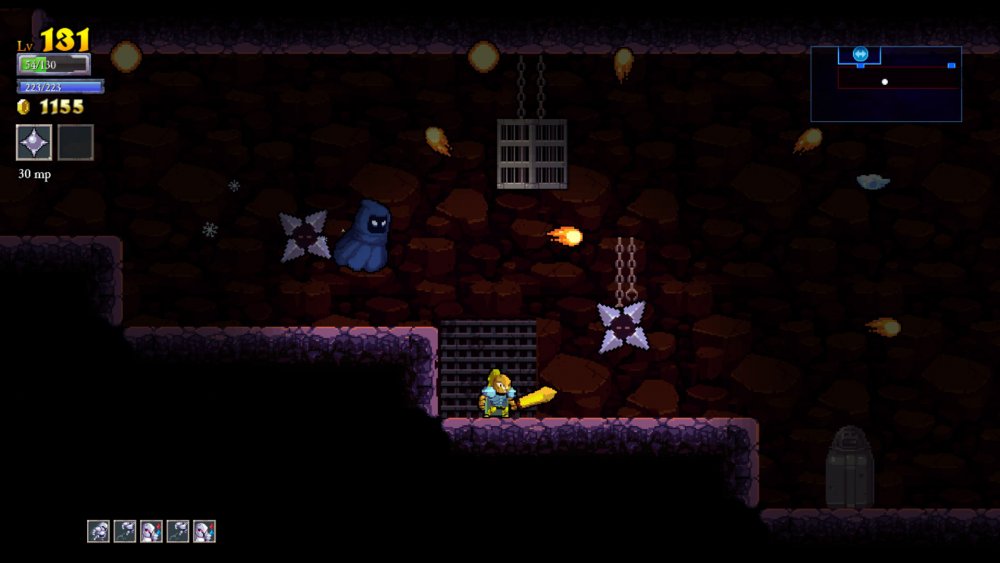Beyond Co-Op Review: Rogue Legacy

“My mother never came back from this castle. The only keepsake we have is the money she sent back, which wasn’t even enough for me to buy a new shield from the blacksmith. Did I see a hint of sadness in his eyes when I told him what I was doing? Did the gypsy woman cackle slightly? It makes no matter. Like my mother, and her father before her, and his father before him, and his mother before him, I, too, approach the gate to this abominable fortress.The gatekeeper smiles knowingly as I pay him his fee for entrance. He knows as well as I. For my family, there is nothing else. This is our inheritance, our curse, our promise to our progeny. This... is our legacy.”
As the title of the game suggests, Rogue Legacy falls within the genre of a “roguelike,” a term that traces its roots back to a Unix-based game released in 1980 called (appropriately enough), Rogue. The genre broadly describes any game that includes at least some of the following elements: permanent character death, RPG elements, randomized levels, and turn-based movement. Rogue Legacy includes the first three but swaps in an action platformer gameplay for the turn-based movement/combat.
How all of that plays out is simple enough. Each time you enter the castle, your overall goal is to enter the lair of the final boss, which can only be achieved by defeating each of the four other bosses spread across the stronghold’s four areas. Fortunately, once you slay a boss, it stays dead. As you traverse the fortress, you’ll jump from ledge to ledge, you’ll swing your sword to hack up enemies and collect gold, and you’ll even cast a spell or two. In many ways, you may be reminded of the Castlevania games from the NES and SNES days. Eventually, you’ll die (that is an inevitability) and be taken back to the title screen where you can continue your quest and select your descendant. This is where the game takes its departure from more traditional roguelikes.
In many of those games, your character death does mean a loss of much of your progress up until that point. Any gold, equipment, and levels you’ve gained are lost to the winds. You start all over again as the same character embarking upon the same quest and the same dialogue with any NPCs, it’s just the layout of the levels themselves and what monsters you encounter that has changed. For Rogue Legacy, your death is the start of a much longer story. It begins with selecting your heir or heiress and his or her character class from one of three options. The offspring you select also has his or her own traits, e.g., ADHD, color blindness, homsexuality, dwarfism, and more. Some of these traits will have a negative impact on playing - vertigo, for instance, flips everything upside down - while others really have no bearing whatsoever.

Once you’ve made your choice, you’re presented with your family’s mansion, which also serves as the upgrade screen. From here you can spend the hardfought gold you collected on increasing stats like health, mana, strength, and intelligence, unlocking new character classes, unlocking helpful NPCs like the blacksmith and gypsy, and more. This is not only an immediate benefit to yourself, but also the very inheritance you are leaving to your future generations. Whatever upgrades and advantages you purchase for yourself now are the building blocks of further improvement for your offspring.
In addition to the upgrades you purchase at the mansion, you can buy new armor and weapons from the blacksmith, and ability runes (such as a double jump, dash, and even life drain) from the gypsy. These, too, remain available throughout future generations. With all that done, any leftover gold you may have must be paid to Charon, the castle’s gatekeeper, as a toll for entry. You’ll rinse and repeat this process (i.e., make a good run of things, die, select a descendant, buy whatever upgrades you can, and then tackle the castle once more) some 50, 70, or 100 plus times until you finally achieve victory.

That is a breakdown of Rogue Legacy’s gameplay, in essence. It’s a lot of fun and a great platformer. It is not, though, what this game is about. The real core of Rogue Legacy is a story about fathers and mothers, sons and daughters, and the things we leave behind. The little fictionalized story I told at the beginning is what I envision Sir Jimmy III (the 132nd descendant of my clan) must have been thinking as he entered the castle. So many had come before him, and so many would follow. The original premise for even entering the castle, finding a cure for the poisoned king, quickly fades once you’ve hit your 6th or 7th generation as the king must surely be dead. So why do you keep going to the castle? What keeps drawing you back? The ending to the game holds some answers to these questions, but it won’t satisfy them all. After all, it can’t possibly answer why we choose (or not choose) to follow in the footsteps of those that came before us.
Rogue Legacy drew me in with its gameplay mechanics, which are incredibly fun, well executed, and hit all the right buttons for my nostalgia of earlier games, and it left me thinking about genealogy, the things we leave behind, and our reasons for doing what we do.
5